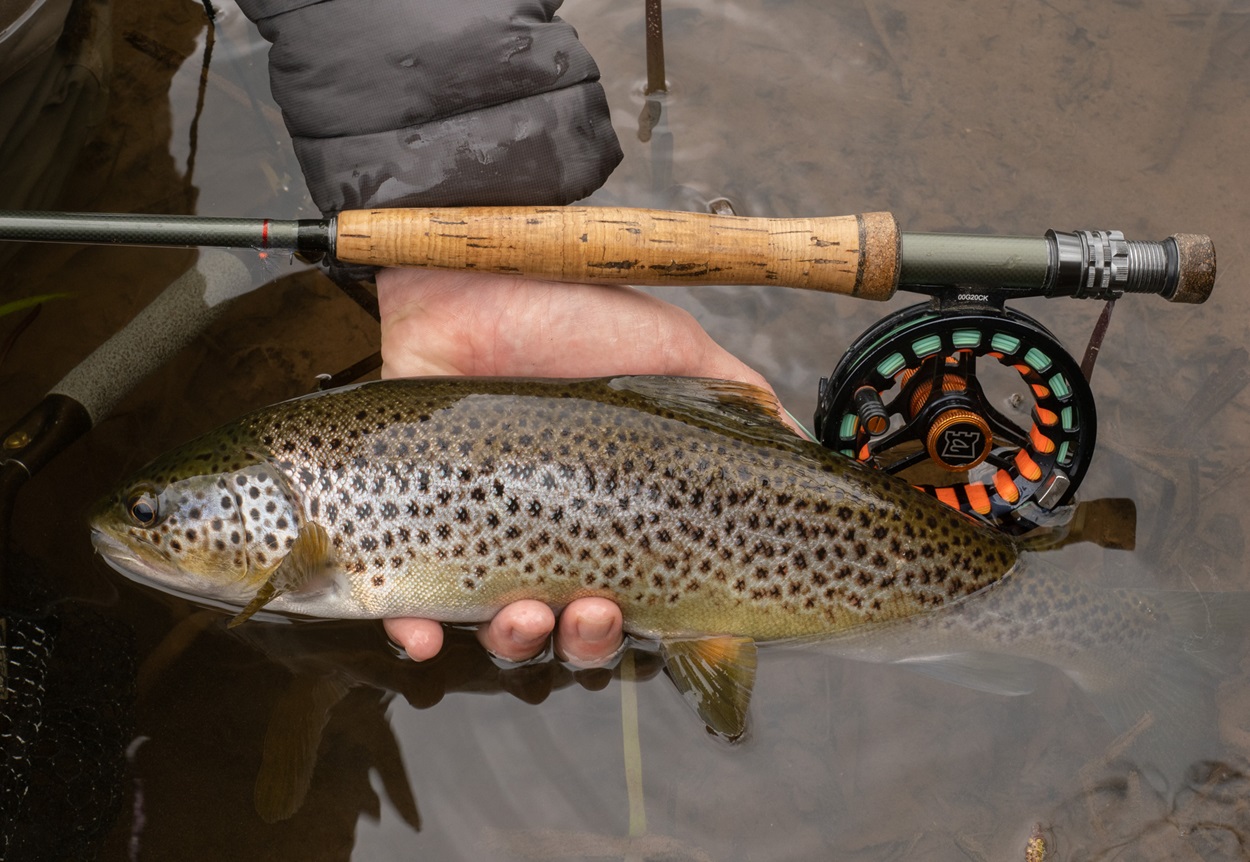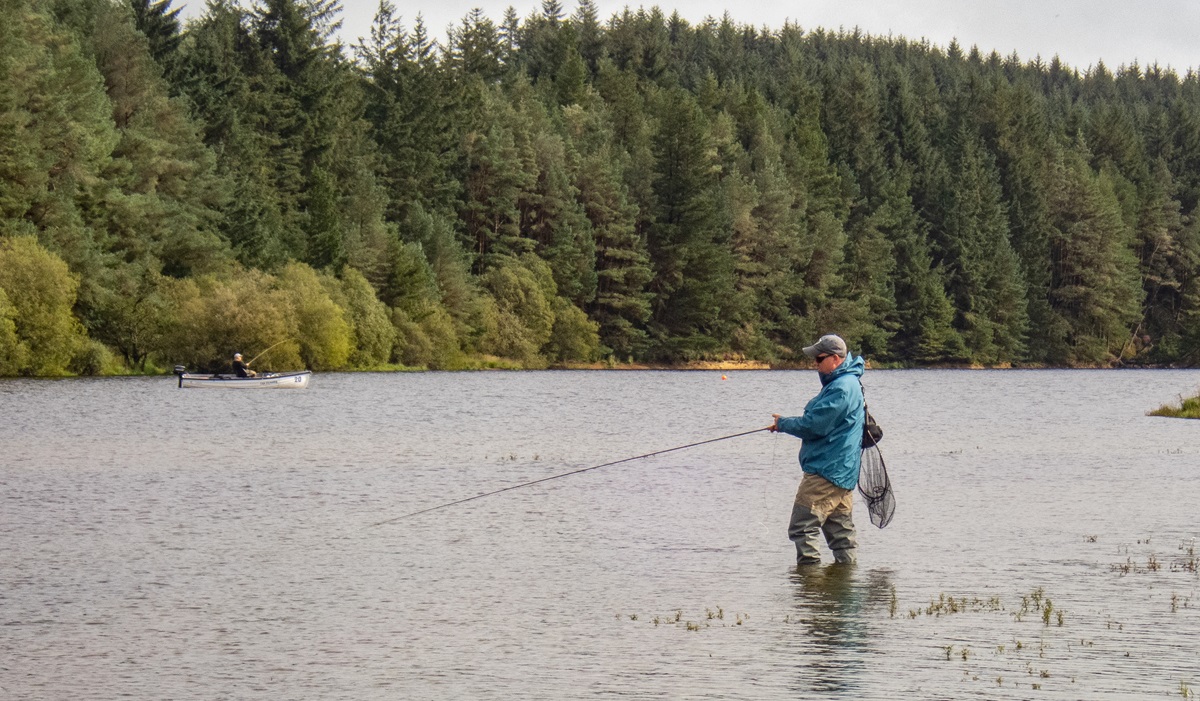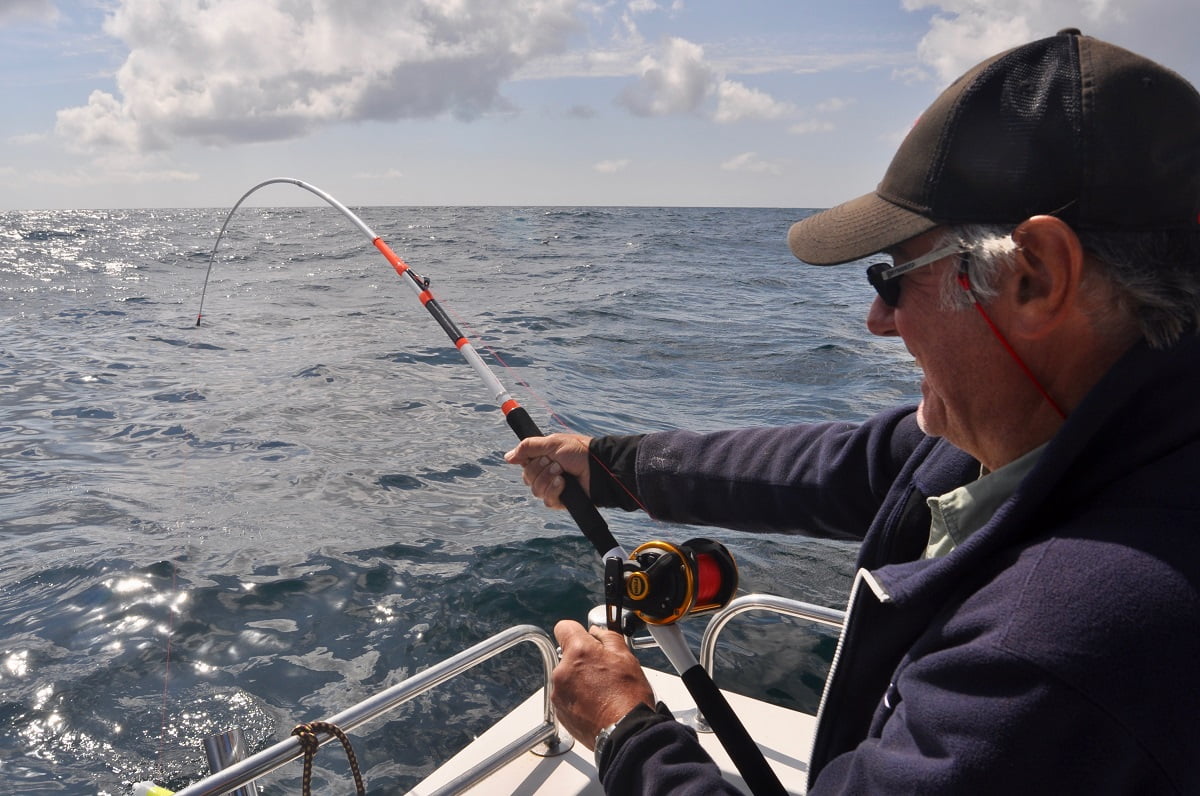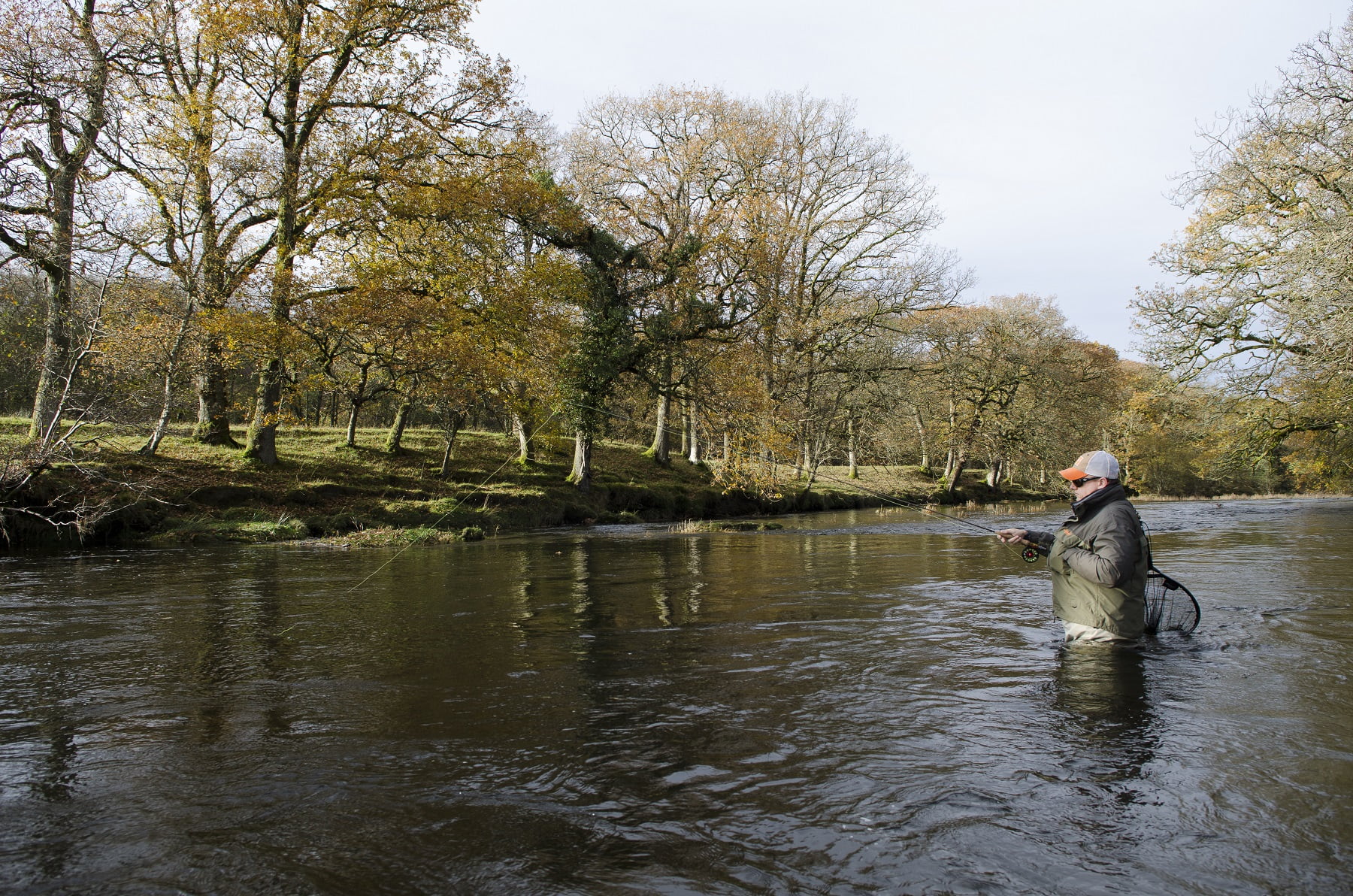New Trout Season – Check List To Fish!
As the long winter months finally give way to spring, excitement builds for trout anglers across Wales. The long-anticipated 3rd of March marks the opening of the fishing season on many* of our celebrated rivers, offering fresh opportunities to cast a line at some of the best wild brown trout in the UK. *(West Wales’ rivers open 1st April, Upper Severn on 18th March)
Before you rush to the water though, it’s crucial to ensure that you’re fully prepared – doing some groundwork goes a long way. This ‘checklist to fish’ will help ensure you’re ready for a successful start to the new season!
Get Your Permits in Order
Before heading out, ensure you have the necessary permissions to fish your chosen waters.
Angling club membership or permit: The vast majority of rivers in Wales are managed by angling clubs or by private owners, who offer access via a paid permit or a club membership. Make sure your membership has been renewed for the season before you fish, or that your permit is up to date and valid for the day of fishing.
Government Rod Licence: A rod licence from Natural Resources Wales (NRW) or Environment Agency is legally required for trout fishing in Wales and England. Ensure yours is in-date and renewed before hitting the water. It’s easy to do this online, via the Government Website. (Note: Rod Licence cards are no longer supplied, you will receive a rod licence via email or text, or an A4 letter)
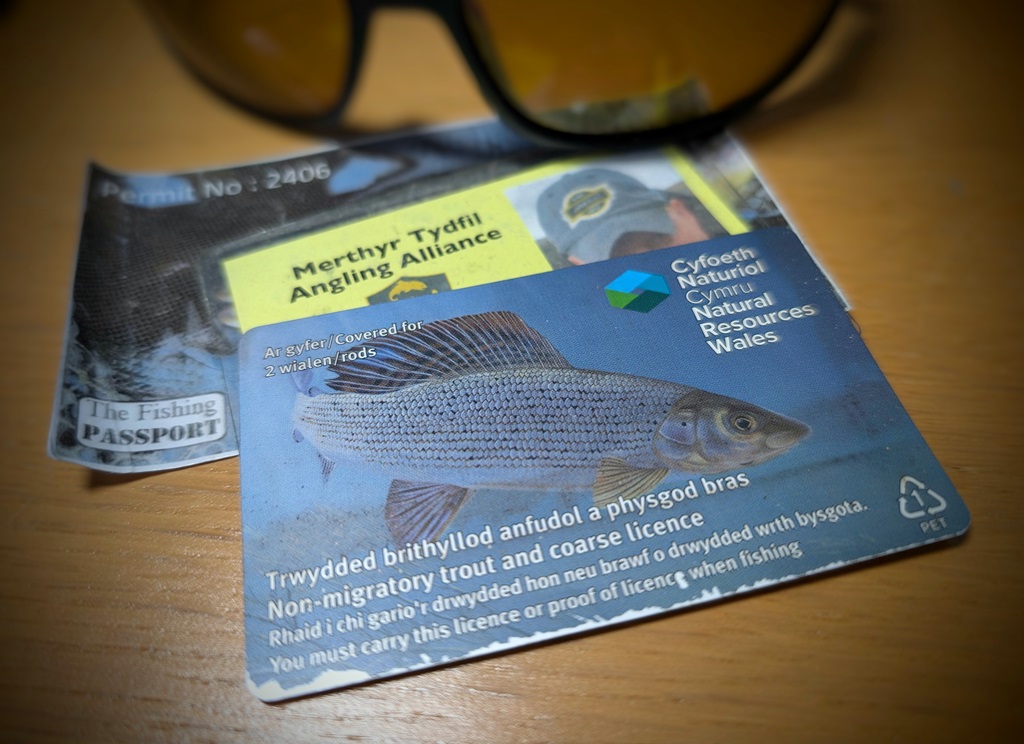
Inspect Your Tackle
After months of storage, your fly fishing equipment may need some attention. It is well worth going through the following checks:
Rod Inspection: Check for any damage to the rod blank and ensure the rod rings (eyes) are free of cracks, damage or grooves that could cut your fly line. It’s also worth giving your rod a clean up, dirt and dust should be wiped off the handle, reel seat, blank and eyes with a damp rag and some warm diluted washing up liquid.
Reel Maintenance: It is well worth checking over your reels, especially the drag system to see if it still works as it should. Sadly, a lot of people store their reels without slackening off the drag fully, which can lead to issues. Clean and very lightly lubricate the reel with some ‘fishing reel oil’ to ensure smooth operation and drag adjustment. Don’t be tempted to use WD40, it can strip grease out of the bearings and premature cause wear.
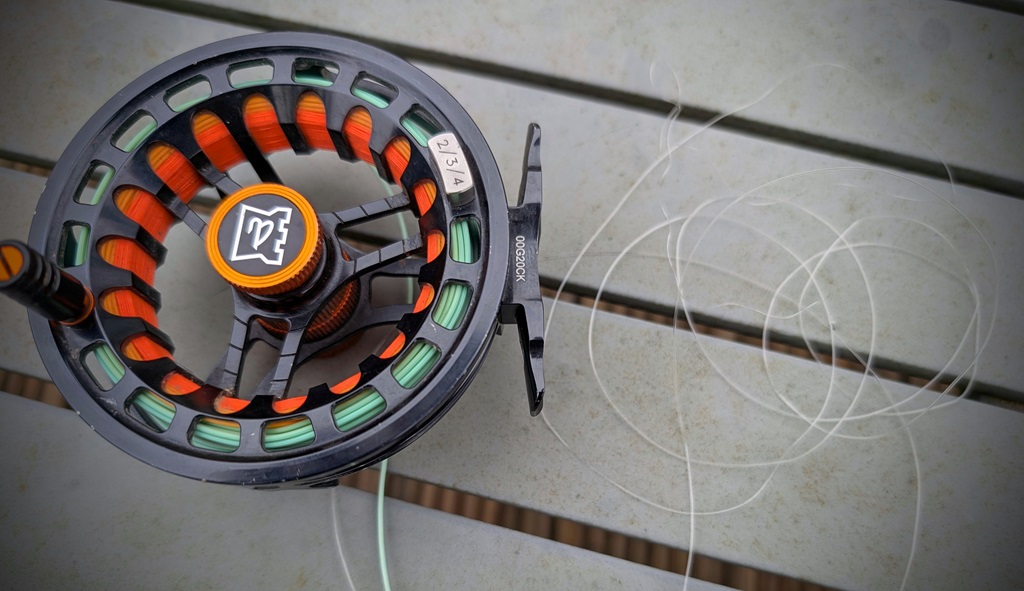
Fly Line Care: Fly lines are not indestructible and should be looked after. A well-maintained line will improve casting efficiency and buoyancy, and will extend its lifespan.
A basic fly line treatment will involve stripping the line into a basin of luke-warm water, then pulling it through a clean cloth or paper towel to remove ingrained dirt. Once dry and clean, there are a number of fly line dressings that can be sparingly applied, from manufactures such as Loon, Rio and Snowbee. These will help keep the fly line coating soft and supple. Pay attention to treating the tip of the fly line, as these can sink if they are dirty, damaged or cracked.
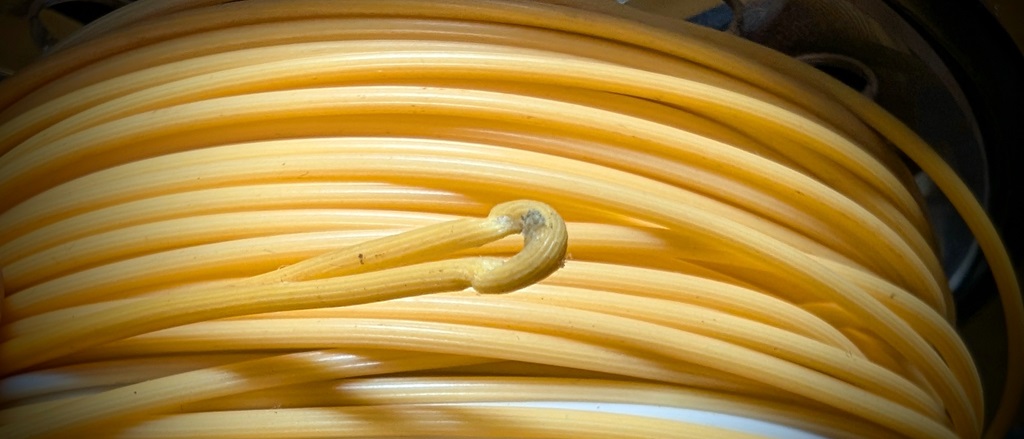
Inevitably, all PVC based fly lines will crack after a couple of seasons, depending on frequency of use. This could lead to the fly line sinking, with a rough feel and texture that will might hinder casting and make the line unpleasant to use. If you find that your fly line is badly cracked, it may be worth investing in a new line for the season ahead.
Some fly line manufactures such as Airflo last longer, because they use polyurethane, a tougher type of plastic. These still need a clean and a wipe down from time to time.
Leaders & Tippet: Discard any old, curly tapered leaders that you have left over from last season. Monofilament material degrades with time and can become brittle, so check and replace your tippet spools if needed. Fluorocarbon tippet is more durable than mono, but even so, it can become weaker if exposed to sunlight or repeated dunking’s, so it is worth testing your Fluorocarbon tippet as well.
Flies Check: Sort through your fly boxs and clear your fly patch, discarding any rusty, blunt or damaged flies, and take the opportunity to restock or tie up the essential patterns for the season ahead. Rusty and blunt hooks lead to lost fish!
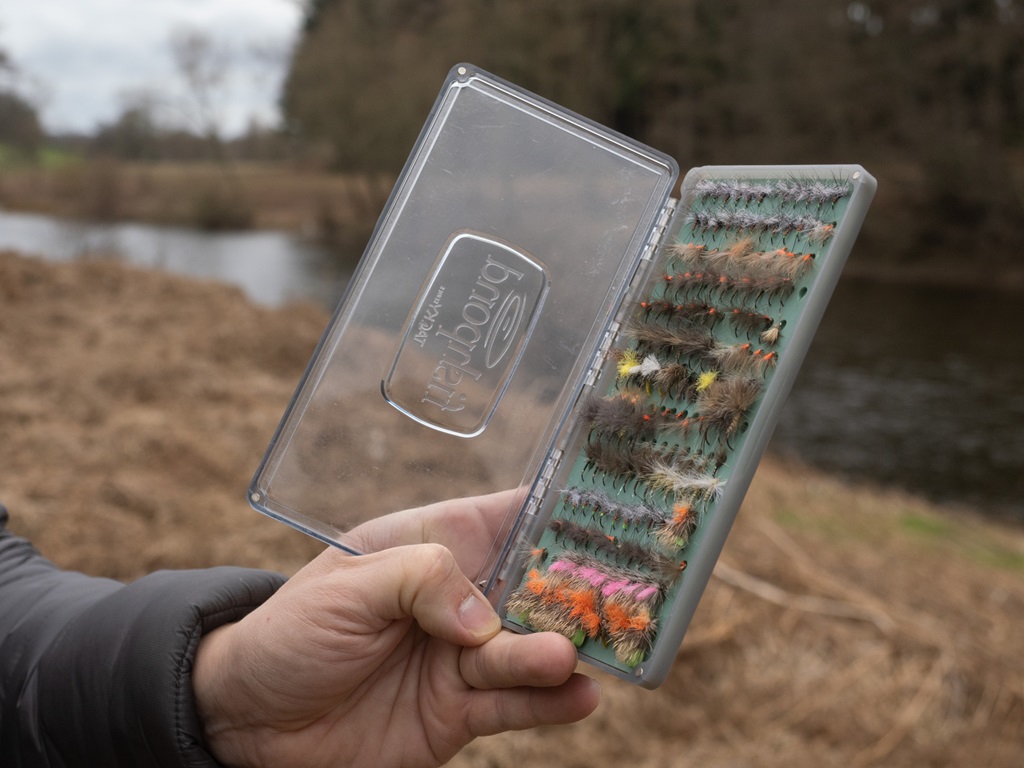
Nets: Nets are prone to damage from insects or rodents while in storage, and net bag mesh can rot or be damaged during fishing. Check your net bag mesh and look for any holes or damage. These can lead to lost fish. Aim to replace net bags if needed – there are some good ‘rubber’ replacement net bags out there, these tend to be a lot more durable long term, with less odour and better fish care.
Waders & Clothing Check
Waders: Check over for any obvious rips, holes or tears. It is worth testing your waders out before opening day just in case – you could use a bath of water or find a local river or pond and wade in. Repair any small leaks in advance to avoid an unpleasant surprise on the riverbank.
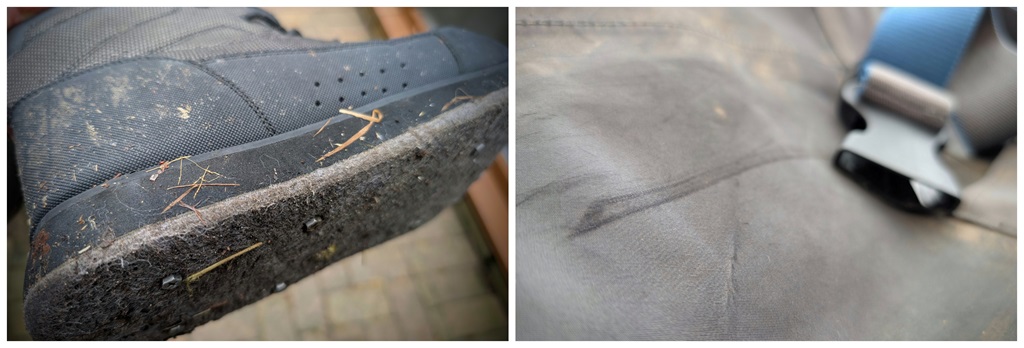
Wading Boots: Inspect the soles and laces for damage, ensuring they provide good grip and support on slippery rocks. Felt soles can come off wading boots, if they are stored in a damp place, so these should be checked for any sign of failure. It is also worth renewing and replacing wading boot studs which have been worn down.
Jackets: Early season fishing can be wet. Dirty breathable clothing can leak. It may be worth washing your wading jacket on a hand wash setting with no soap (check the label) then after drip drying re-proofing the fabric with a water repellent spay such as ‘Fabsil’ which will fully restore the water repellent coating, allowing rain to bead off.
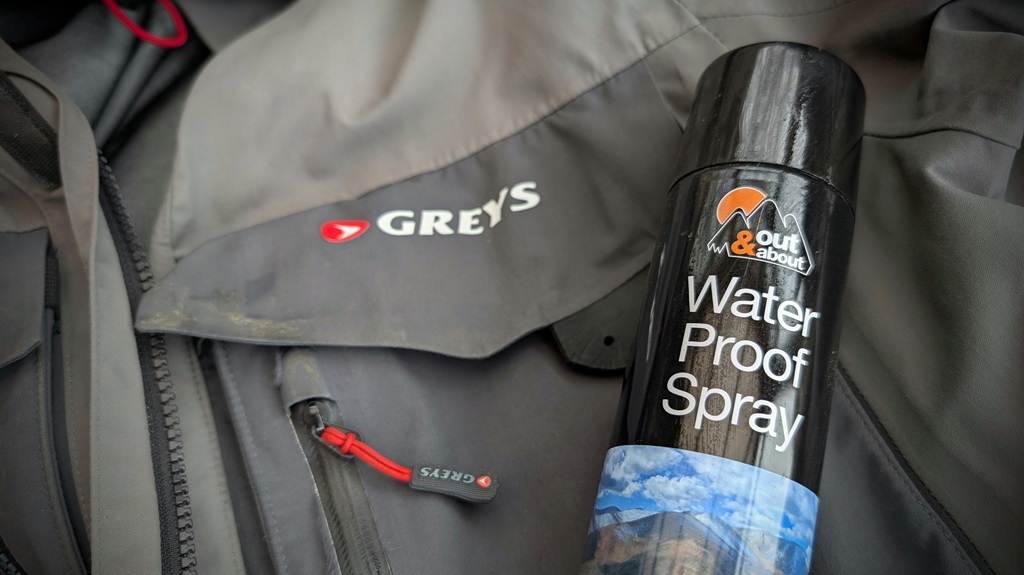
Ready to Go!
With all the preparation done, you’re ready to embrace the new trout season with confidence. The rivers and streams of Wales offer spectacular angling opportunities, and by taking the time to check your gear and permits, you’ll be set for a fantastic start. Tight lines and happy fishing.
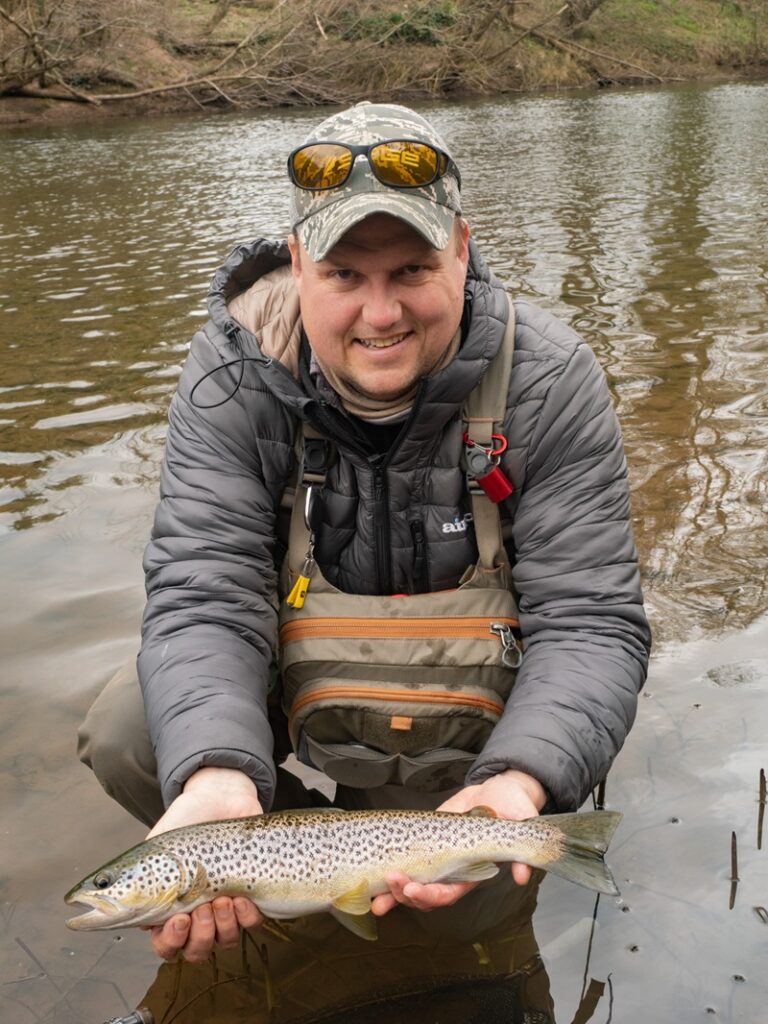
*West Wales rivers open 1st April for trout, River Severn 18th March.
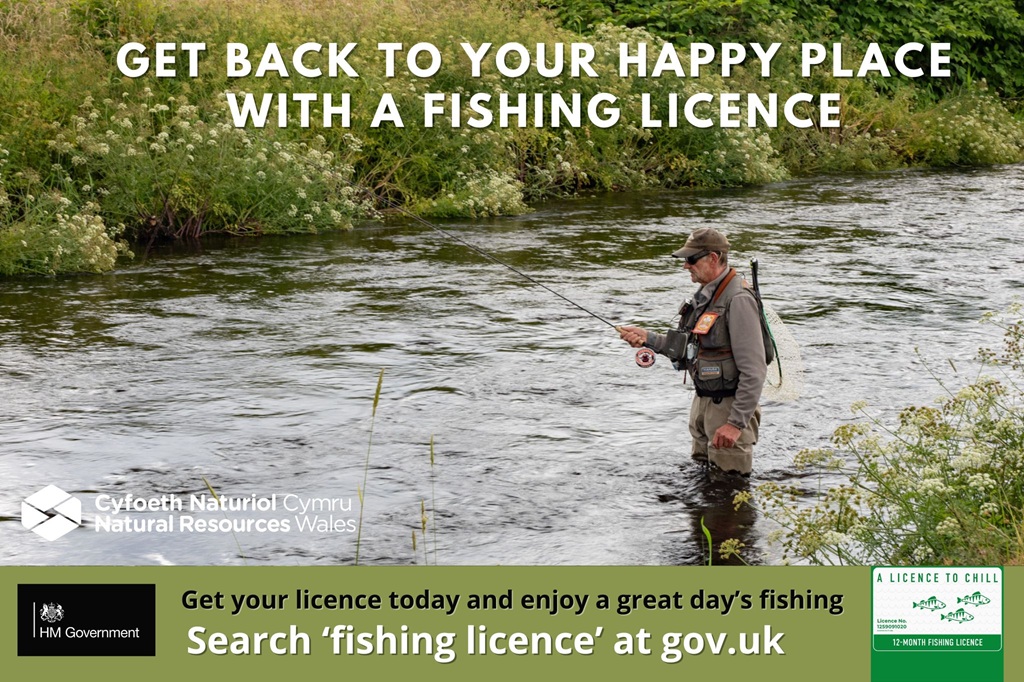
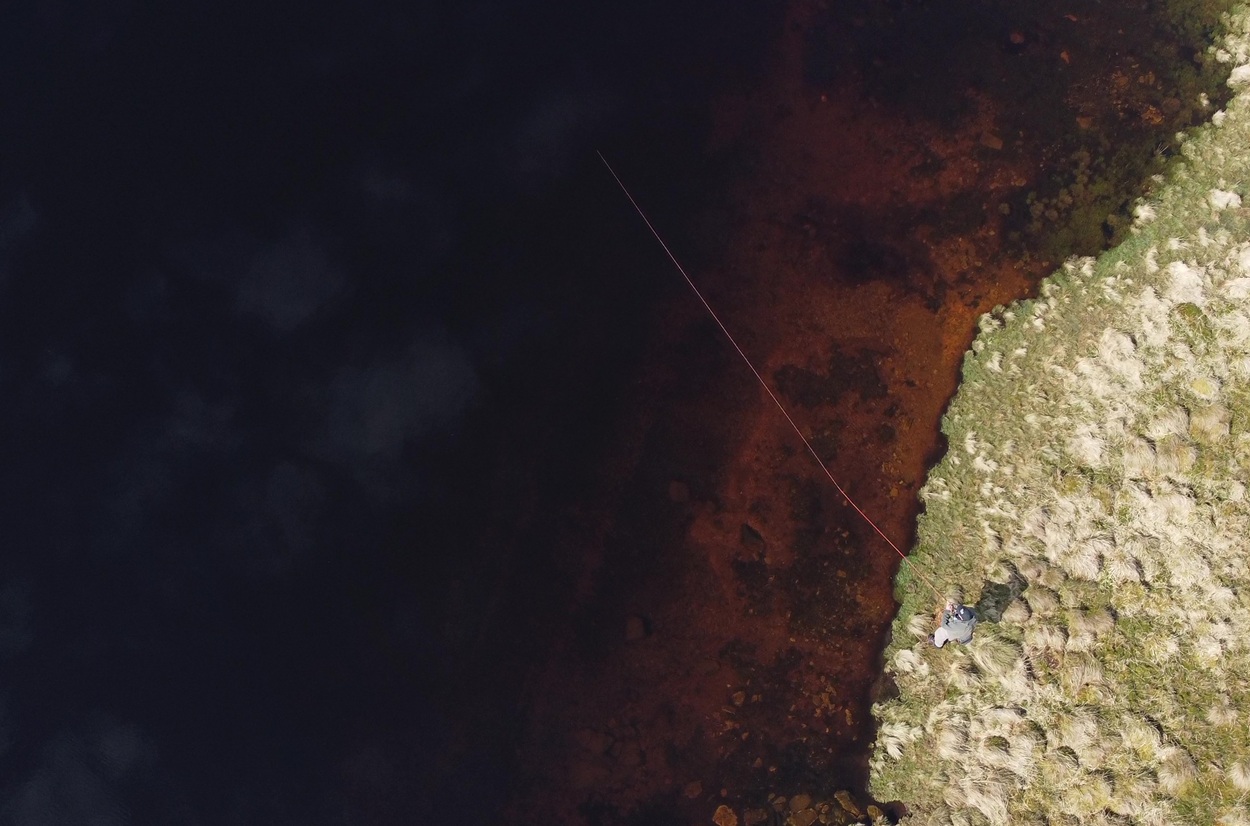
Fishing the Teifi Pools VIDEO
Teifi Pools Mid Wales. Season starts on March 3rd – one of only a few upland lakes that open so…
Read More
Wales' Sea Fishing 'Off Season'
The latest sea angling blog from the pen of angling writer Dave Lewis – when the fishing is tough, what…
Read More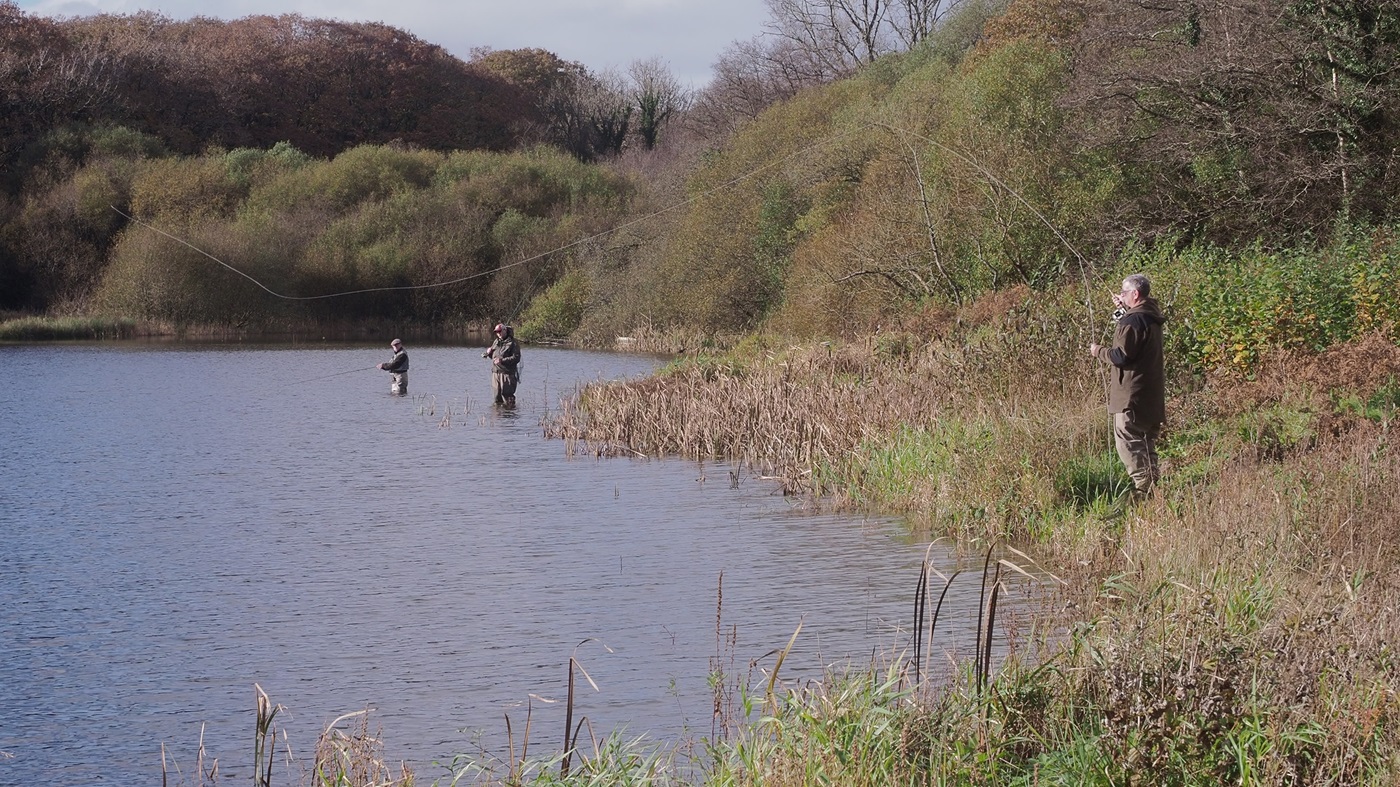
Beat the Winter Blues: Get Out and Fish!
As we drift through January it’s easy to feel the weight of the so-called “winter blues.” Monday, January 19th is…
Read More
